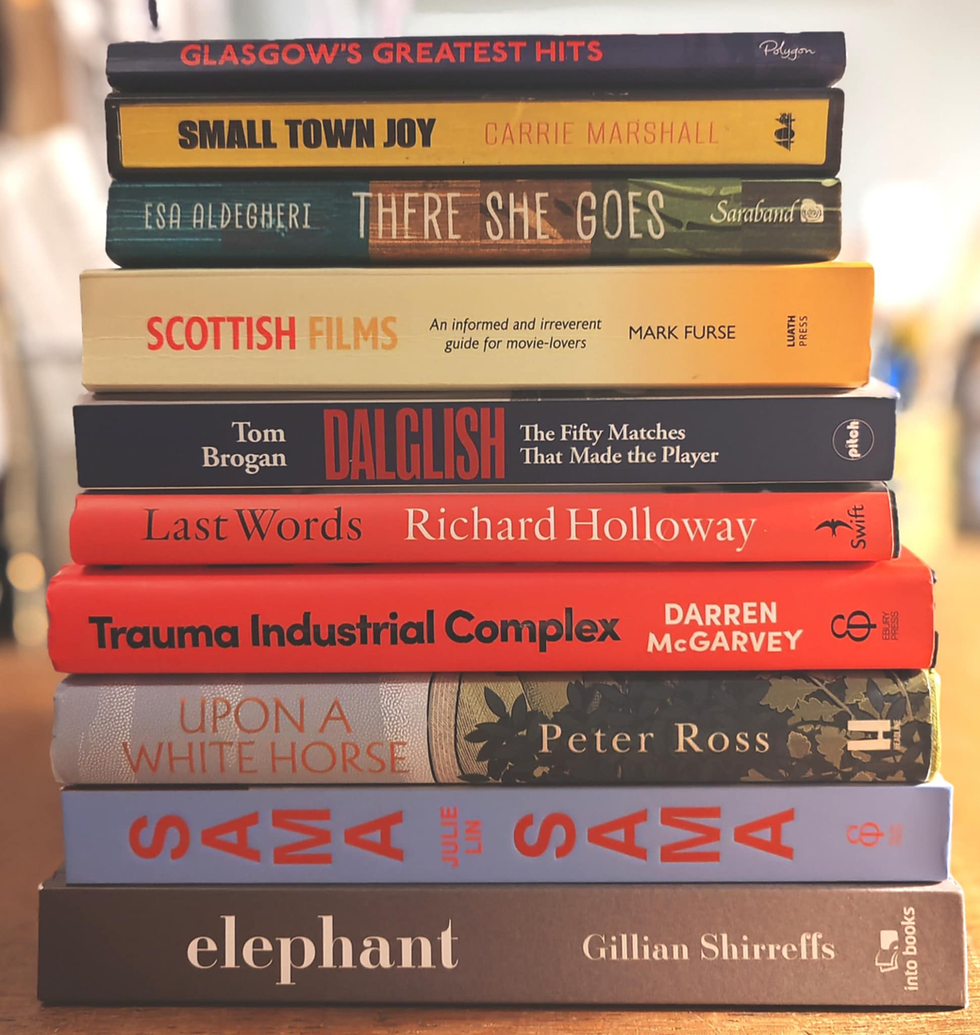Great Scott!: A Review Of Allan Massie’s The Ragged Lion…
- Alistair Braidwood

- Jul 12, 2018
- 3 min read
Updated: Jan 27, 2022

The first book of Allan Massie’s I read was his historical novel Augustus (I think in the late ’80s) and it made a deep impression on me. I hadn’t been a huge fan of historical fiction up to that point, preferring the modern and contemporary even then. Written in the form of a memoir by the titular Roman emperor in old age, what was so impressive was how Massie managed to get into the character and make the reader believe that this was his life, at least from his point of view.
It’s a style which served Massie well in 1991’s Tiberius, the second of his “Memoirs of the Emperor” novels, and it is one he similarly applies in The Ragged Lion, his 1994 novel about the life of Walter Scott which has just been republished by Polygon Books. For those who are fans of Scott’s fiction it is essential, but, as with the Roman Trilogy, it is also a great read for those interested in the history of the time as it looks at the people, places, events and attitudes through the prism of arguably the most famous Scottish writer, and, certainly at the time, the most celebrated.
There has been a renaissance of interest in Scott recently, both abroad and at home, with his novels, and his often overlooked poetry, being reassessed, and this new edition of Massie’s novel feels timely. He is as thorough in researching the detail of Scott’s life as readers’ of his other historical fiction would expect, but where the story comes to life is in the voice which, while not Scott’s certainly reads like it.
As the name suggests, The Ragged Lion is far from being a hagiography. Massie’s Scott displays the pride, ego and financial naivety you would expect from the man who built a home such as Abbotsford, but also insecurity and jealousy at the success of others. However, there is never any doubt that Massie is on the great man’s side. Throughout he details the writing – both poetry and the novels – taking us through Scott’s favourites, and why. As such it also works as a guide to Scott’s work in that it points a reader in the direction as to where best to start, and what to leave to completists.
As well as examining the life of one of Europe’s most successful and influential writers, The Ragged Lion also gives perspective and insight into the history of the time, including King George IV’s infamous visit to Edinburgh which Scott had such a big hand in organising. We also get an insight into Scott’s contemporaries, from Austen to Wordsworth. His relationship with the latter could be described as complicated, as could the one with his near neighbour, the Ettrick Shepherd James Hogg whose own brother worked for Scott.
But the most memorable literary love-in, if our narrator is to be considered a reliable one, was between Scott and Lord Byron who were involved in what can only be described as a life-long bromance. Having said that, you can’t shake the feeling that Scott’s admiration for Byron’s poetry and appearance were not reciprocated with the same strength of feeling.
Other notable figures of the time to feature are Robert Burns, Adam Ferguson, Benjamin Disraeli, Robert Peel, and Francis Jeffrey, as well as Scott’s close friends and family. These include John Gibson Lockhart whose own biography of Scott, his father-in-law, is widely respected and would undoubtedly be an influence on, and source for, Massie. But it should never be forgotten that The Ragged Lion is a novel, and comparing the two asks many questions about literary and historical fiction versus biographical “fact”.
Clearly a fan himself, Massie suggests that reading Scott will well reward the “intelligent reader”. Since you have chosen to read Scots Whay Hae! that surely includes you, and if you haven’t read any Walter Scott yet, or not for some time, I would recommend The Ragged Lion to put the books and the writer into clearer perspective. Sir Walter was not just a Great Scot(t), but one of the greatest, and his legacy and literature should not be forgotten. Luckily it looks like that’s unlikely to happen any time soon.
The Ragged Lion is published by Polygon Books, who you can follow on Twitter and Facebook.
Here’s the SWH! video podcast all about Walter Scott which was filmed at Abbotsford, and the University of Glasgow, with Ali, Dr Ronnie Young and special guest Professor Douglas Gifford:









Comments